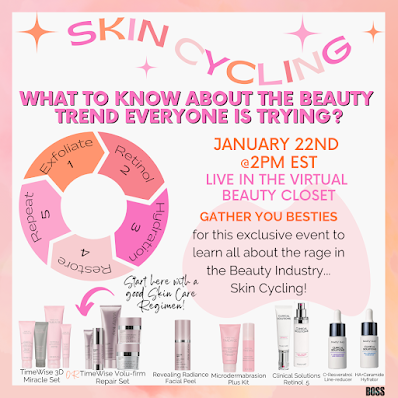Let’s be real—fighting acne in your 30s, 40s, and beyond feels totally unfair. You've already survived puberty, you’re juggling work, family, and maybe even perimenopause—and yet those pesky, painful breakouts still show up uninvited. If this sounds like your story, you're not alone. And the good news? I found a game-changing solution that finally turned the page on my acne journey: glycolic acid.
My 15-Year Battle with Breakouts
For over a decade, I tried everything—prescriptions, harsh scrubs, restrictive diets, and even going makeup-free. Some things helped a little, but nothing stuck. My acne was mostly hormonal, flaring up around my chin and jawline every month like clockwork. It wasn’t just frustrating—it chipped away at my confidence.
The Turning Point: Enter Glycolic Acid
Everything changed when I added glycolic acid to my routine. Specifically, I started using it once a week—no more, no less. Within weeks, I saw a difference. My skin was smoother, my breakouts were fewer, and even my dark spots from old blemishes began to fade. It felt like a miracle... but it was really just smart skincare.
Why Glycolic Acid Works
Glycolic acid is an alpha hydroxy acid (AHA) that gently exfoliates the top layer of your skin. Think of it as your skin’s reset button. It:
✅ Unclogs pores before they turn into breakouts
✅ Speeds up cell turnover for brighter, smoother skin
✅ Fades post-acne scars and discoloration
✅ Helps other products absorb better (which makes your routine even more effective)
And because it works on the surface, it’s a perfect complement to internal approaches like clean eating or hormone support.
Consistency Over Perfection
I didn’t change my entire routine—just added this one powerful step. I use it once a week like clockwork. Not every day. Not twice a week. Just once. That consistency is what made all the difference.
Clear Skin Isn’t Just Possible—It’s Personal
For me, clearing my skin was about more than vanity. It was about feeling comfortable in my own skin again. About showing up to meetings without piling on concealer. About finally looking in the mirror and seeing peace instead of frustration.
If you’ve been struggling with adult hormonal acne, don’t give up hope. Glycolic acid may just be the gentle powerhouse your skin has been waiting for.
Try it now with this link for FREE shipping: https://www.marykay.com/bstillings/en-us/products/skincare/collection/timewise-repair/timewise-repair-revealing-radiance-facial-peel-300524
Join our community of women thriving with hormonal acne..... https://www.facebook.com/groups/1164076597262404











.jpg)













